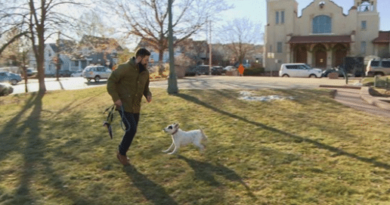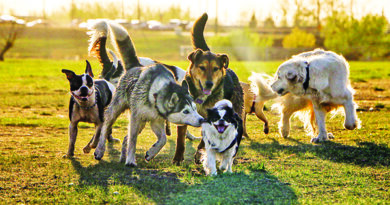Would You Clone Your Dog? – Dogster
The lifespans of dogs are much shorter than ours. Living through and processing the grief of their passing is one of the hardest aspects of loving dogs. For those dog guardians who feel like they just can’t let go, one option becoming increasingly accessible is cloning. Dog Cloning may sound like something out of a science fiction movie, but it’s much more widespread than you might think, and you don’t have to be a millionaire to afford to clone your dog.
Lauren Aston of ViaGen Pets and Equine whose work is focused on cloning pets as well as conservation based cloning with organizations like the San Diego Zoo explained that the United States based company began producing cloned dogs in 2015 and since that time has successfully cloned several hundred pets for families. Dogs that are cloned will generally share the same appearance and possibly even the intelligence and temperament of your original dog. Cloned puppies are genetic twins of your dog that are born at a different time. Cloned dogs have the potential to live full and healthy lives and it is believed they are no more susceptible to any health conditions than any other dog.
How does dog cloning work?
If you think you might want to clone your dog at some time in the future the first step is something called “Genetic Preservation.” This involves your veterinarian collecting your dog’s DNA/genetic sample via a small tissue sample. The tissue sample from your dog is then frozen/preserved for use in the future if you decide to move forward with cloning.
At ViaGen there is a one-time fee of $1,600 for preparing and processing your dog’s DNA via the genetic preservation and then an annual storage fee of $150. DNA samples can successfully be collected from dogs of any age but your dog were to suddenly pass away, or become terminally ill it’s not too late to consider cloning as an option. “We can even accept DNA samples within five days of death as long as the samples are kept refrigerated NOT frozen” Lauren explains.
There will be a waiting list for dog cloning
Once you decide you are ready to move forward with cloning your dog utilizing the genetic material that has been collected the process is fairly simple. Lauren notes that currently ViaGen has a waiting list for all the species of pets (dogs, cats, horses) that they clone so you would need to get onto that waiting list. Not taking the waiting list into account Lauren says that the process of cloning takes approximately six months from start to finish from a Genetic Preservation sample to cloning to receiving a puppy. If you clone your dog, the cloned puppy will be born and cared for at the ViaGen facility in the Northeast United States and will stay there until they are at least eight weeks old and ready to go home to you.
How much does it cost to clone a dog?
Not surprisingly the process of cloning is expensive. At ViaGen “currently the cost for dog cloning is $50,000” says Lauren. The costs associated with cloning are the same regardless of what breed of dog you have, and the size of the dog being cloned. For this fee Lauren notes that people can expect that they will get one or two cloned puppies.
Will a cloned dog be the same as your dog?
The big question that most people have when it comes to cloned dogs is will the puppy produced be the same as their dog. The answer is complicated. When you clone a dog you will end up with a puppy (or puppies) that are genetically identical to your dog, but they won’t be your dog.
“With cloning you are guaranteed to receive a genetic twin to your original beloved dog. We know that some portion of temperament and behavior are genetic. That said, you may experience similarities, however, nature vs nurture will have the greatest outcome” Lauren describes.
It’s important to remember if you are considering cloning your dog that although the cloned puppy will be genetically identical to your dog, and will look like your dog they won’t have the same life experiences, socialization as your dog. Unlike your dog the puppy will not know who you are or and understand the same things your dog knows.
As with any other puppy with a cloned puppy you will have to start from scratch with training as well as bonding. There can be some stigma about the idea of cloning but ultimately considering, to clone your dog, or to collect genetic samples to leave the option of cloning open in the future is a very personal decision. With the procedure becoming increasingly accessible, it’s likely will start seeing more cloned dogs in our communities. Would you consider cloning your dog?




